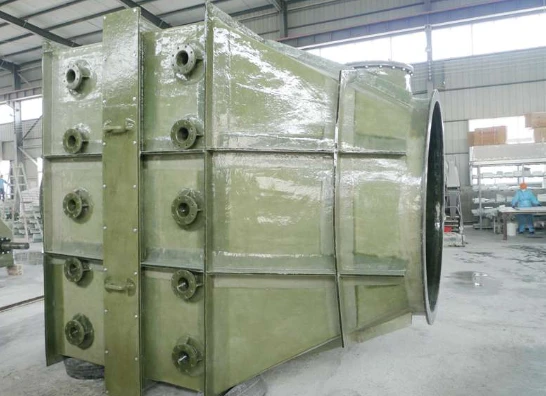
-
 Afrikaans
Afrikaans -
 Albanian
Albanian -
 Amharic
Amharic -
 Arabic
Arabic -
 Armenian
Armenian -
 Azerbaijani
Azerbaijani -
 Basque
Basque -
 Belarusian
Belarusian -
 Bengali
Bengali -
 Bosnian
Bosnian -
 Bulgarian
Bulgarian -
 Catalan
Catalan -
 Cebuano
Cebuano -
 China
China -
 China (Taiwan)
China (Taiwan) -
 Corsican
Corsican -
 Croatian
Croatian -
 Czech
Czech -
 Danish
Danish -
 Dutch
Dutch -
 English
English -
 Esperanto
Esperanto -
 Estonian
Estonian -
 Finnish
Finnish -
 French
French -
 Frisian
Frisian -
 Galician
Galician -
 Georgian
Georgian -
 German
German -
 Greek
Greek -
 Gujarati
Gujarati -
 Haitian Creole
Haitian Creole -
 hausa
hausa -
 hawaiian
hawaiian -
 Hebrew
Hebrew -
 Hindi
Hindi -
 Miao
Miao -
 Hungarian
Hungarian -
 Icelandic
Icelandic -
 igbo
igbo -
 Indonesian
Indonesian -
 irish
irish -
 Italian
Italian -
 Japanese
Japanese -
 Javanese
Javanese -
 Kannada
Kannada -
 kazakh
kazakh -
 Khmer
Khmer -
 Rwandese
Rwandese -
 Korean
Korean -
 Kurdish
Kurdish -
 Kyrgyz
Kyrgyz -
 Lao
Lao -
 Latin
Latin -
 Latvian
Latvian -
 Lithuanian
Lithuanian -
 Luxembourgish
Luxembourgish -
 Macedonian
Macedonian -
 Malgashi
Malgashi -
 Malay
Malay -
 Malayalam
Malayalam -
 Maltese
Maltese -
 Maori
Maori -
 Marathi
Marathi -
 Mongolian
Mongolian -
 Myanmar
Myanmar -
 Nepali
Nepali -
 Norwegian
Norwegian -
 Norwegian
Norwegian -
 Occitan
Occitan -
 Pashto
Pashto -
 Persian
Persian -
 Polish
Polish -
 Portuguese
Portuguese -
 Punjabi
Punjabi -
 Romanian
Romanian -
 Russian
Russian -
 Samoan
Samoan -
 Scottish Gaelic
Scottish Gaelic -
 Serbian
Serbian -
 Sesotho
Sesotho -
 Shona
Shona -
 Sindhi
Sindhi -
 Sinhala
Sinhala -
 Slovak
Slovak -
 Slovenian
Slovenian -
 Somali
Somali -
 Spanish
Spanish -
 Sundanese
Sundanese -
 Swahili
Swahili -
 Swedish
Swedish -
 Tagalog
Tagalog -
 Tajik
Tajik -
 Tamil
Tamil -
 Tatar
Tatar -
 Telugu
Telugu -
 Thai
Thai -
 Turkish
Turkish -
 Turkmen
Turkmen -
 Ukrainian
Ukrainian -
 Urdu
Urdu -
 Uighur
Uighur -
 Uzbek
Uzbek -
 Vietnamese
Vietnamese -
 Welsh
Welsh -
 Bantu
Bantu -
 Yiddish
Yiddish -
 Yoruba
Yoruba -
 Zulu
Zulu
Mar . 06, 2025 12:23
Back to list
fiberglass tank
Fiberglass tanks have revolutionized how industries manage storage and containment, providing robust solutions across various applications. As industries grow and demand more sustainable and durable materials, fiberglass has become the superior choice for tanks, offering unmatched benefits over traditional materials like steel or concrete.
Beyond durability and environmental considerations, fiberglass tanks provide excellent thermal insulation properties. This feature is essential for industries requiring the storage of temperature-sensitive liquids, like industrial chemicals or certain food products. Maintaining temperature stability without requiring additional insulation measures further enhances cost-efficiency. For these tanks to perform at their peak, partnering with a reputable manufacturer is key. An experienced manufacturer will ensure the tank's construction adheres to industry standards and is suitable for the intended application. They can also offer guidance on installation and maintenance, ensuring the tank performs optimally throughout its lifespan. A manufacturer with a proven track record adds an essential layer of trust and reliability, giving clients peace of mind in their investment. The efficacy of fiberglass tanks is often proven through testimonials and case studies, showcasing real-world applications where these tanks have performed exceptionally. For instance, wastewater treatment facilities have reported significant cost savings and operational efficiency upon replacing their traditional tanks with fiberglass ones, demonstrating tangible benefits. It's essential for potential buyers to consider the specific needs of their application when selecting a fiberglass tank. Factors such as the type of liquid being stored, the required capacity, and any specific environmental conditions should be evaluated. Consulting with an expert in fiberglass solutions can assist in making the most informed decision, ensuring that the tank not only meets but exceeds operational requirements. In summary, fiberglass tanks offer a range of benefits that make them an optimal choice for various industrial needs. Their durability, lightweight design, resistance to corrosion, and environmental friendliness set them apart from other materials. When installed and utilized with the guidance of experienced professionals, these tanks provide a robust, long-term solution that can significantly enhance the efficiency and sustainability of industrial operations.


Beyond durability and environmental considerations, fiberglass tanks provide excellent thermal insulation properties. This feature is essential for industries requiring the storage of temperature-sensitive liquids, like industrial chemicals or certain food products. Maintaining temperature stability without requiring additional insulation measures further enhances cost-efficiency. For these tanks to perform at their peak, partnering with a reputable manufacturer is key. An experienced manufacturer will ensure the tank's construction adheres to industry standards and is suitable for the intended application. They can also offer guidance on installation and maintenance, ensuring the tank performs optimally throughout its lifespan. A manufacturer with a proven track record adds an essential layer of trust and reliability, giving clients peace of mind in their investment. The efficacy of fiberglass tanks is often proven through testimonials and case studies, showcasing real-world applications where these tanks have performed exceptionally. For instance, wastewater treatment facilities have reported significant cost savings and operational efficiency upon replacing their traditional tanks with fiberglass ones, demonstrating tangible benefits. It's essential for potential buyers to consider the specific needs of their application when selecting a fiberglass tank. Factors such as the type of liquid being stored, the required capacity, and any specific environmental conditions should be evaluated. Consulting with an expert in fiberglass solutions can assist in making the most informed decision, ensuring that the tank not only meets but exceeds operational requirements. In summary, fiberglass tanks offer a range of benefits that make them an optimal choice for various industrial needs. Their durability, lightweight design, resistance to corrosion, and environmental friendliness set them apart from other materials. When installed and utilized with the guidance of experienced professionals, these tanks provide a robust, long-term solution that can significantly enhance the efficiency and sustainability of industrial operations.
Next:
Related Products









